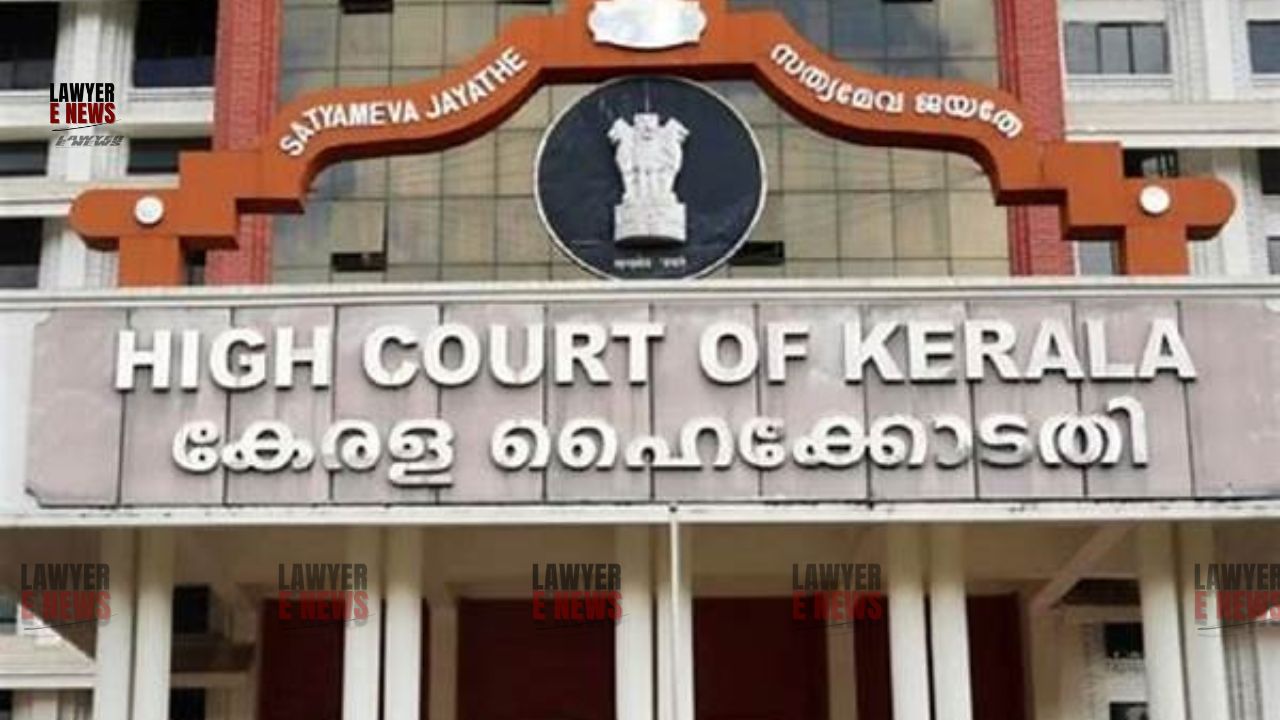-
by Admin
15 February 2026 5:35 AM



Kerala High Court, in a landmark ruling, quashed the transfer orders of three Assistant Managers from the Indian Overseas Bank, finding the transfers to be punitive in nature. Justice Murali Purushothaman held that the transfers were issued as disguised punishments for alleged insubordination without following due disciplinary proceedings, violating the officers' fundamental rights under Articles 14, 16(1), and 19(1)(g) of the Constitution of India. The Court emphasized that transfers made in lieu of punishment without proper disciplinary measures are illegal and unsustainable.
The petitioners contended that their transfers were made as a form of punishment following a review meeting in which they raised concerns about UPI transaction delays. The Court agreed, observing:
"The chain of events following the review meeting, culminating in the transfer orders, can only be viewed as punitive in nature, as it seeks to punish the petitioner for the alleged act of insubordination by transferring him to the farthest region in the country."
The Court held that the bank's failure to initiate disciplinary proceedings, while issuing transfer orders under the guise of administrative exigencies, constituted "malice in law".
The case arose from three writ petitions (WP(C) Nos. 33124, 33114 & 33133 of 2024) filed by Bubu K.V., Vineeth Chelekkat, and Prabin N, all Assistant Managers of different branches of the Indian Overseas Bank. The petitioners challenged their transfer orders to distant regions after a review meeting on September 7, 2024, during which one petitioner raised concerns about UPI transaction delays, reportedly leading to friction with the bank's Regional Manager. The bank subsequently issued transfer orders for the petitioners to Guwahati, Odisha, and Lucknow, alleging insubordination without initiating any formal disciplinary proceedings.
The petitioners claimed the transfers were retaliatory actions for voicing genuine concerns during the meeting. They argued that the transfers violated the bank's internal transfer policy and infringed upon their constitutional rights.
The key legal question in the case was whether the transfer orders constituted "punitive transfers" and if the bank violated due process by not conducting disciplinary proceedings. The petitioners also argued that the transfers breached the bank’s internal transfer policy, which required a performance review and an opportunity to improve before transfers could be made for non-performance.
Allegations of Insubordination and the Transfer Policy Violation
The bank contended that the transfers were administrative measures necessitated by the petitioners' insubordination during the review meeting. However, the Court noted that no disciplinary action was taken before issuing the transfer orders, a clear violation of due process. The petitioners argued that expressing concerns during a meeting does not amount to insubordination and cannot be used as grounds for punitive transfer without any formal inquiry.
Punitive Transfers Without Disciplinary Proceedings Violate Constitutional Rights
The Court found that the transfers were made as "punitive actions" in response to the petitioners' conduct during the review meeting. Justice Purushothaman stated:
"An order of transfer passed in lieu of punishment is illegal and cannot be sustained."
The Court relied on the Supreme Court's ruling in Somesh Tiwari v. Union of India [(2009) 2 SCC 592], where it was held that punitive transfers are illegal unless preceded by proper disciplinary proceedings. The Court emphasized that the transfer orders were made to punish the petitioners for their alleged insubordination without giving them an opportunity to defend themselves.
Malice in Law: Transfer Orders Masking Punishment
The Court further observed that the transfer orders were motivated by "malice in law", as they were issued without any administrative necessity. The lack of any formal inquiry into the allegations of insubordination, followed immediately by the transfer orders, indicated that the real purpose of the transfer was to penalize the petitioners.
The Court also rejected the bank’s defense that the transfers were made due to administrative exigencies:
"There is a post factum attempt in the counter affidavit filed by the respondents that the petitioner has been transferred to maintain discipline in the region. However, the transfer order does not state any reason for transfer, indicating that it was indeed punitive in nature."
The Court ruled that the transfers violated the petitioners' rights under Articles 14, 16(1), and 19(1)(g) of the Constitution. The right to equality (Article 14) and protection from arbitrary state action were infringed, as the transfers were issued without any objective justification or adherence to the bank’s own transfer policy. The Court also highlighted the impact on the petitioners' right to practice any profession (Article 19(1)(g)), as the transfers to far-off locations would severely affect their personal and professional lives, especially given the absence of any proven misconduct.
The petitioners also argued that the bank’s internal transfer policy, which requires an opportunity for improvement before transfer due to performance issues, was not followed. The Court held that the transfers did not comply with the policy:
"The transfer policy mandates that no staff shall be transferred for non-performance without giving an opportunity to improve performance. No such opportunity was provided to the petitioners, and the transfers were made arbitrarily."
The Kerala High Court quashed the transfer orders, ruling that they were punitive actions disguised as administrative transfers. The Court ordered that the petitioners be reinstated to their original postings and that any further proceedings against them must follow proper disciplinary measures. It also emphasized that transfer orders, when used as punishment, must be based on valid grounds and follow due process, failing which they cannot be sustained in law.
Date of Decision: 22 October 2024
Bubu K.V. v. Indian Overseas Bank
